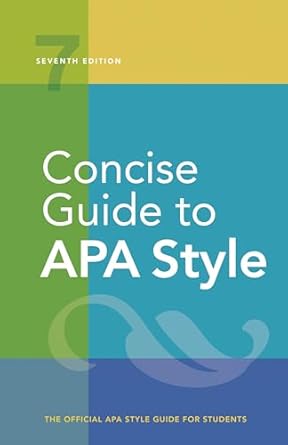[toc]
scholarly writing avoiding jargon maintaining clarity
Concise Guide to APA Style: 7th Edition (OFFICIAL)
Page 63 Review
Effective Scholarly Writing: A Critical Review
This excerpt from “Effective Scholarly Writing” delves into key aspects of academic writing style, focusing on clarity, precision, and accessibility.
The text emphasizes avoiding jargon, contractions, and colloquialisms to maintain a professional tone and ensure comprehension across different audiences.
Understanding Your Audience
The excerpt highlights the importance of considering the reader’s perspective. “Consider someone in a related field who is trying to keep abreast of the literature but is not familiar with the jargon or insider perspectives of your field.
What would help this reader understand your work and appreciate its importance?” This crucial question underscores the need for writers to bridge the gap between specialized knowledge and broader understanding.
By anticipating potential difficulties and tailoring the language accordingly, authors can significantly enhance the impact of their work.
Contractions and Colloquialisms: Maintaining Formality
The text provides clear guidelines on the use of contractions and colloquialisms. “Avoid using contractions and colloquialisms, which detract from a professional tone in scholarly writing.
Contractions—shortened forms of one or two words in which an apostrophe is used in place of missing letters—generally do not appear in scholarly writing because they convey an informal tone.” This rule helps maintain a formal and objective voice, essential for academic credibility.
The excerpt further clarifies, “To avoid contractions and improve your writing, evaluate words with apostrophes carefully.
Excluding the exceptions noted next, rewrite a word like “can’t” into “cannot.””
However, the excerpt acknowledges exceptions, such as “in reproducing a direct quotation that contains a contraction (e.g., when quoting a research participant, do not change a participant’s use of “let’s go” to “let us go”), referring to a contraction as a linguistic example (e.g., when discussing confusion of “who’s” with “whose’), or referring to an idiom or common saying that contains a contraction (e.g., “you can’t take it with you’).”.
This nuanced approach demonstrates that while formality is generally preferred, context matters.
Similarly, the excerpt advises against using colloquialisms: “Likewise, avoid colloquialisms, which are informal expressions used in everyday speech and writing (e.g., “to write up” instead of “to report,” “gonna” instead of “going to”).
These expressions often diffuse meaning, as in the case of approximations of quantity; “quite a large part,” “practically all,” and “very few” are interpreted differently by different readers or in different contexts.
Approximations weaken statements, especially those describing empirical observations.
Instead, use precise, scholarly language.” The emphasis on precise language is paramount in scholarly work.
The Pitfalls of Jargon
The excerpt dedicates significant attention to the issue of jargon. “Jargon is specialized terminology that is unfamiliar to those outside a specific group.
Overuse of jargon, even in papers in which that vocabulary is relevant, hinders comprehension.” This highlights a common challenge in academic writing: balancing the need for specialized vocabulary with the need for accessibility.
The excerpt warns that “Jargon also may be euphemistic if substituted for a familiar term (e.g., “period of economic adjustment” instead of “recession”), and you should avoid using jargon in this way.
Bureaucratic jargon has had the greatest publicity, but academic or scientific jargon may also grate on readers, encumber communication, and waste space.
Use language that allows readers to understand your writing even if they are not.”
Key Takeaways for Effective Scholarly Writing
- Audience Awareness: Always consider the reader’s background knowledge and tailor your writing accordingly.
- Formal Tone: Avoid contractions and colloquialisms to maintain a professional voice.
- Precision: Use precise language instead of approximations or vague expressions.
- Jargon Awareness: Minimize jargon and explain specialized terms when necessary.
- Clarity: Prioritize clarity and conciseness to ensure effective communication.
In conclusion, this excerpt provides valuable insights into crafting effective scholarly writing.
By adhering to these principles, academics can enhance the clarity, impact, and accessibility of their work, fostering a deeper understanding and appreciation of their research among a wider audience.
Buy full ebook for only $18: https://www.lulu.com/shop/american-psychological-association/concise-guide-to-apa-style-7th-edition-official/ebook/product-rmzpq54.html?page=1&pageSize=4
Scholarly Writing Avoiding Jargon Maintaining Clarity
Read more: Personality Functioning: Scales & Statistics Analysis</
Read more: Spelling, Capitalization Rules: A Quick Guide</


Leave a Reply